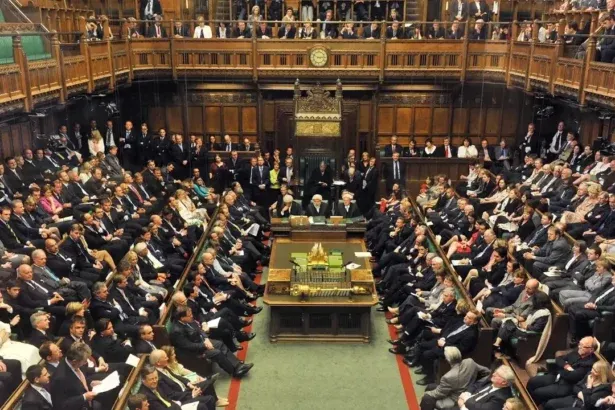The British Parliament has published a 42-page research report revealing India’s aggressive actions during a recent conflict with Pakistan. The report warns that the Kashmir issue could trigger a nuclear war in South Asia if left unresolved.
The report provides a clear timeline, starting from the Pahalgam incident and ending with a ceasefire. It highlights the Indian military attacks on May 6–7, 2025, as the main cause of the crisis.
The conflict started after an attack in Pahalgam, occupied Kashmir, on April 22. India claimed 26 people were killed and blamed Pakistan without any evidence. It then launched cross-border military strikes.
Pakistan denied involvement and asked for an international investigation, but India refused and continued its actions.
On May 6–7, India bombed civilian and military areas in Pakistan-administered Kashmir, saying it was targeting terrorists. In response, Pakistan retaliated strongly and defended its territory.
From May 6 to May 10, both countries exchanged missile and gunfire attacks. A ceasefire was reached on May 10 after global pressure.
India also suspended trade with Pakistan and threatened to revoke the Indus Waters Treaty. Pakistan replied by warning of withdrawing from the Shimla Agreement, exposing India’s aggressive stance.
The report criticizes India’s military approach and praises Pakistan for acting with restraint and within international law.
It states that India ignores UN resolutions and refuses international help. Instead, it takes unilateral military actions which raise tensions further.
India also rejected offers of mediation from the US, UK, and other countries, worsening the situation.
Experts believe India used the Pahalgam incident as a reason to provoke Pakistan. The report says this is part of India’s plan to maintain control over occupied Kashmir.
The history section of the report recalls that Kashmir was a Muslim-majority state in 1947. India took it by force. The UN later passed a resolution in 1948, giving Kashmiris the right to vote, but India has never allowed it.
Pakistan supports peaceful solutions and invites the world to investigate India’s human rights abuses in Kashmir.
The recent fighting involved both air and ground attacks, killing civilians on both sides. Even after the ceasefire, tensions are still high and trade remains blocked.
The report also criticizes the global powers for acting slowly. The US tried to help behind the scenes, but India did not accept any outside role.
The main warning: If India continues with its aggressive policies and the world does not take action, South Asia could face a nuclear war.
Both countries remain divided. India focuses on blaming Pakistan for terrorism, while Pakistan insists the root problem is India’s occupation of Kashmir.
The report ends by saying this conflict escalated faster than any previous ones, making it extremely dangerous since both countries have nuclear weapons.











